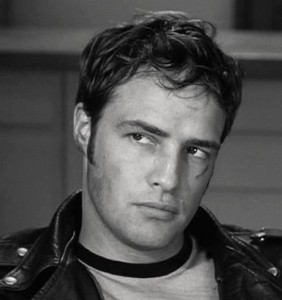 My project titled Chipotle is on hold. I had previously posted about a half dozen process notes on its development. I had the end zone in sight. Now it’s packed away for a while. The reason is that I had sent an earlier manuscript, Being Ruby, out to a writer’s workshop for July. After a week at the Taos Summer Writers’ Conference (www.unm.edu/~taosconf/), the manuscript has been thoroughly critiqued by amateur and professional writers and agents, and that project now has the momentum, as I knew it would, post-conference.
My project titled Chipotle is on hold. I had previously posted about a half dozen process notes on its development. I had the end zone in sight. Now it’s packed away for a while. The reason is that I had sent an earlier manuscript, Being Ruby, out to a writer’s workshop for July. After a week at the Taos Summer Writers’ Conference (www.unm.edu/~taosconf/), the manuscript has been thoroughly critiqued by amateur and professional writers and agents, and that project now has the momentum, as I knew it would, post-conference.
The feedback was generally positive, but there were problems everyone agreed on. Many were technical issues that will be easy to fix. The most challenging criticism was that my characters lacked sufficient emotional density. The characters were too rational, too surface, emotionally untethered. I was advised to develop their emotionality, especially in the relationships. I have to agree, this was a valid criticism.
Some of the emotional flatness is vestigial. The story was first written as a genre P.I. tale, but over rewrites, I decided to develop it into a character study. More of the hard-boiled genre mood remained than I realized. The story still tends to focus on plot points, and the relationships are utilitarian.
The problem is, I’m not sure how to fix that. It’s not enough to have characters laugh or cry at each new development. Displays of emotionality must arise organically from the characters and their situations. So what do they feel? I don’t know. I, myself, don’t ride on waves of feeling throughout the day. I get angry at injustice, disgusted by thoughtlessness, find joy in natural beauty, sadness in death, and so on, like everyone else. But such moments don’t come up often.
Usually, I’m following words, ideas, perceptions and images, looking for new patterns, new ways of understanding. When I read, or watch films, I’m tracking the writer’s craft and insight, the filmmaker’s skills, the actors’ methods. When I interact with people, I observe them closely, try to understand what they’re meaning. If someone insults me or flatters me, I’m not bowled over with emotion. Rather, I struggle to put the comments in context.
I asked randomly selected people at the conference what makes them emotional. Most people, it turns out, live their whole lives in seething cauldrons of emotion. They get worked up over the slightest deviation from absolute normalcy. Anything to do with family relationships is fraught with emotion. People get emotional over other people’s families; even fictional families. They get choked up reading Hallmark cards. The most stereotypical gestures of love and loss are emotional train wrecks. One woman told me that a certain AT&T advertisement on TV makes her cry every time.
Those findings are consistent with the rank sentimentality that oozes from a lot of popular fiction. So what’s wrong with me? I must be a Martian. Actually, I have long suspected I was; this development is not really news to me. But it’s going to be a problem for the next rewrite of Being Ruby. How will I develop the characters’ emotionality?
I’m a retired psychologist. I have studied scientific and anecdotal theories of emotion in some detail. Most of them are nonsense. In truth, psychologists don’t know what emotions are or what causes them or what purpose they have. How-to-write books are no more helpful. They assume you already know what emotion is and when it should occur, and they advise you on how best to represent it in words. But that’s the easy part.
 So I developed my own theory of emotions from scratch – what they are, what causes them, and what purpose they serve in psychological life. I’ll spare you the details, but if you’re interested, the ideas were derived from my non-fiction essay, “The Three-In-One Mind: A Mental Architecture” (billadamsphd.net/). With this theory, I can account for my own experiences of existential poignancy as well as the Hallmark card banalities that devastate others.
So I developed my own theory of emotions from scratch – what they are, what causes them, and what purpose they serve in psychological life. I’ll spare you the details, but if you’re interested, the ideas were derived from my non-fiction essay, “The Three-In-One Mind: A Mental Architecture” (billadamsphd.net/). With this theory, I can account for my own experiences of existential poignancy as well as the Hallmark card banalities that devastate others.
Now I must apply those ideas to my manuscript. I know, I know. Experienced writers out there are thinking, “Good luck with that, buddy.” But maybe the process is like acting. Some actors channel their characters; get deep into them so that the characters’ emotions are their own emotions. Marlon Brando famously used “the method,” as it’s called. Other actors, however, take a different approach, selecting from a toolkit of gestures and expressions to precisely convey the emotions needed. Lawrence Olivier famously followed that procedure, which he called simply, “acting.”
As a Martian, the choice is made for me.
